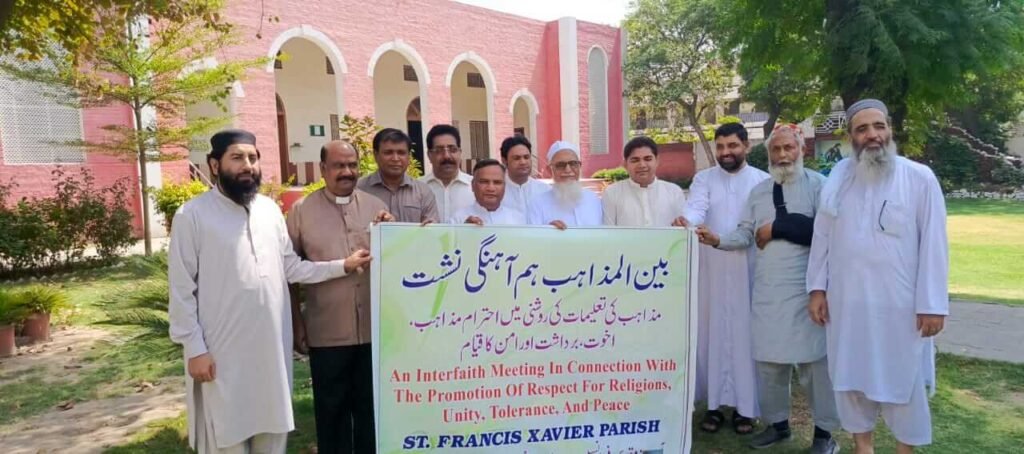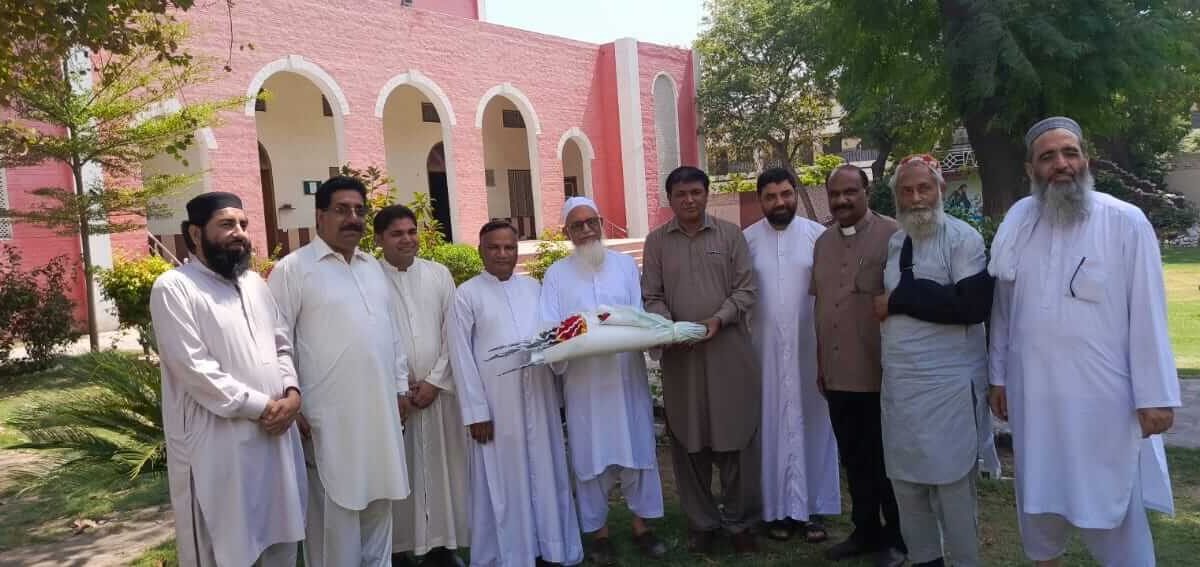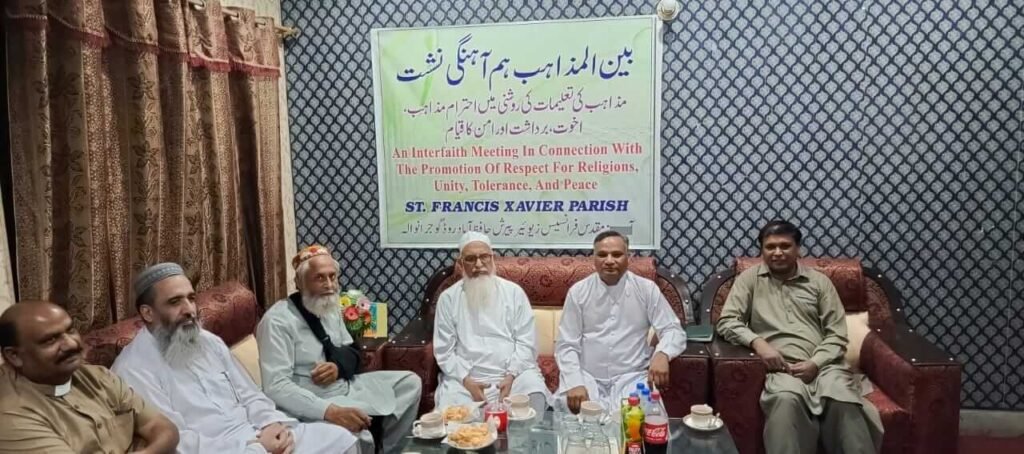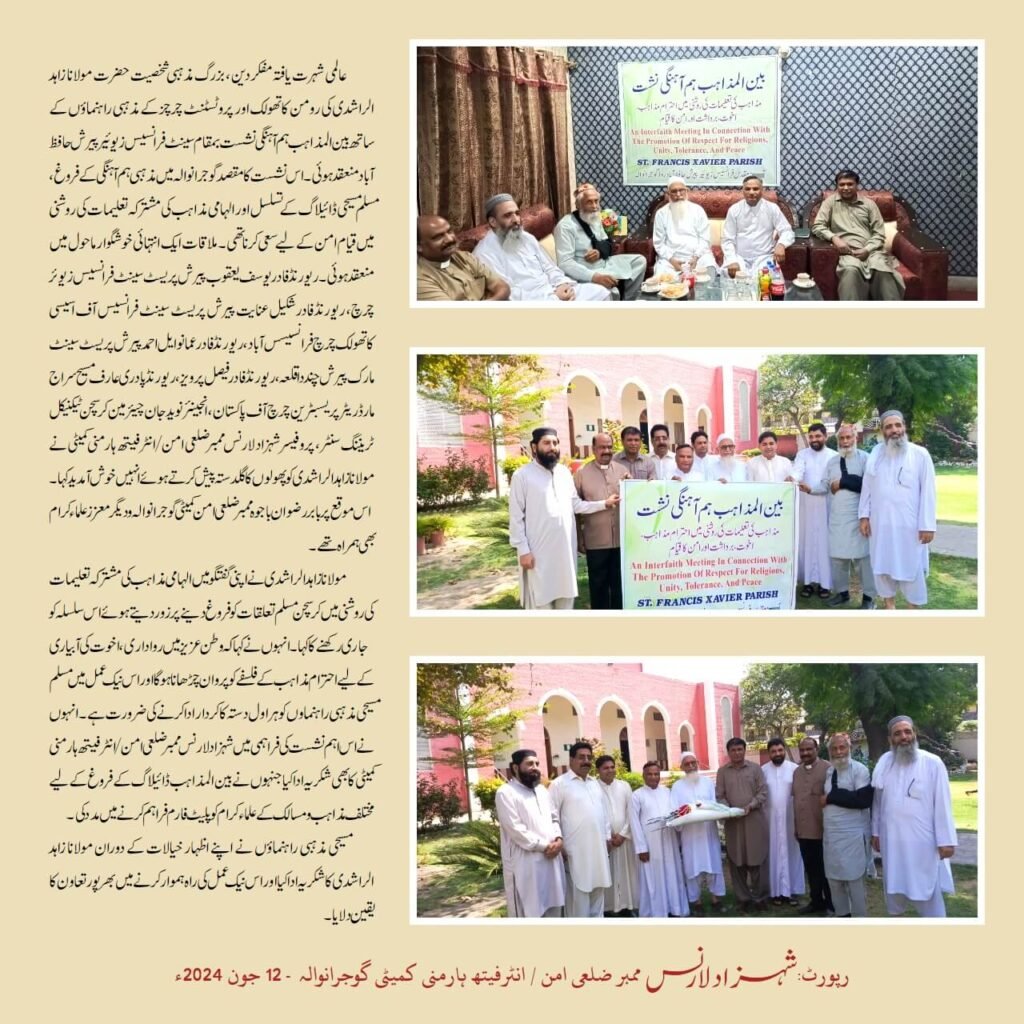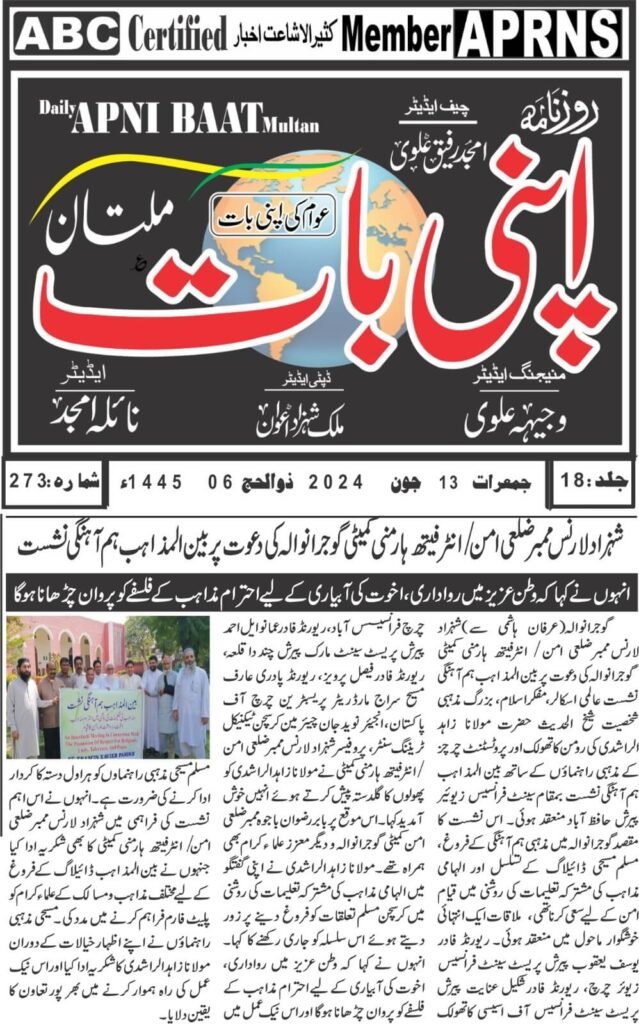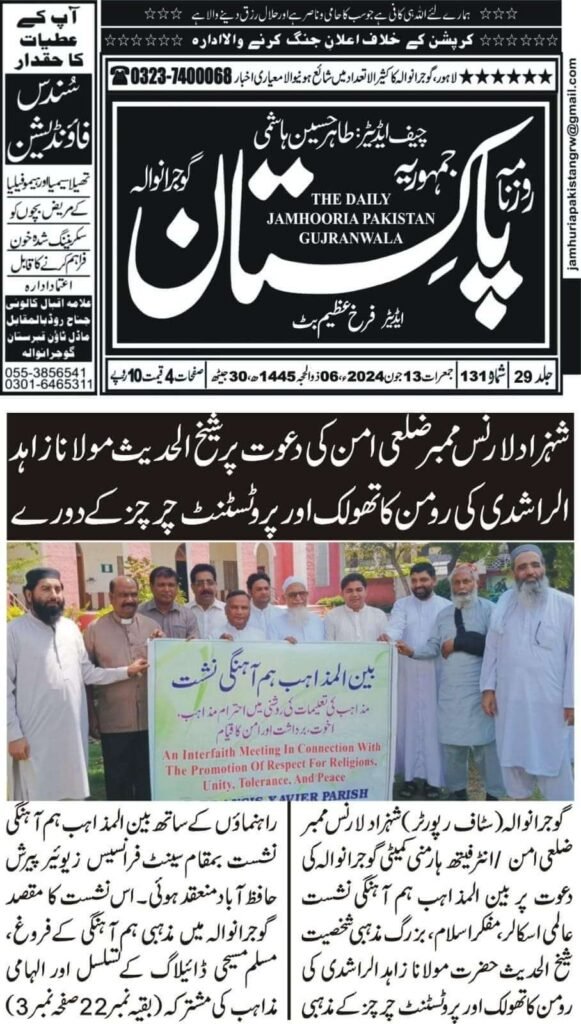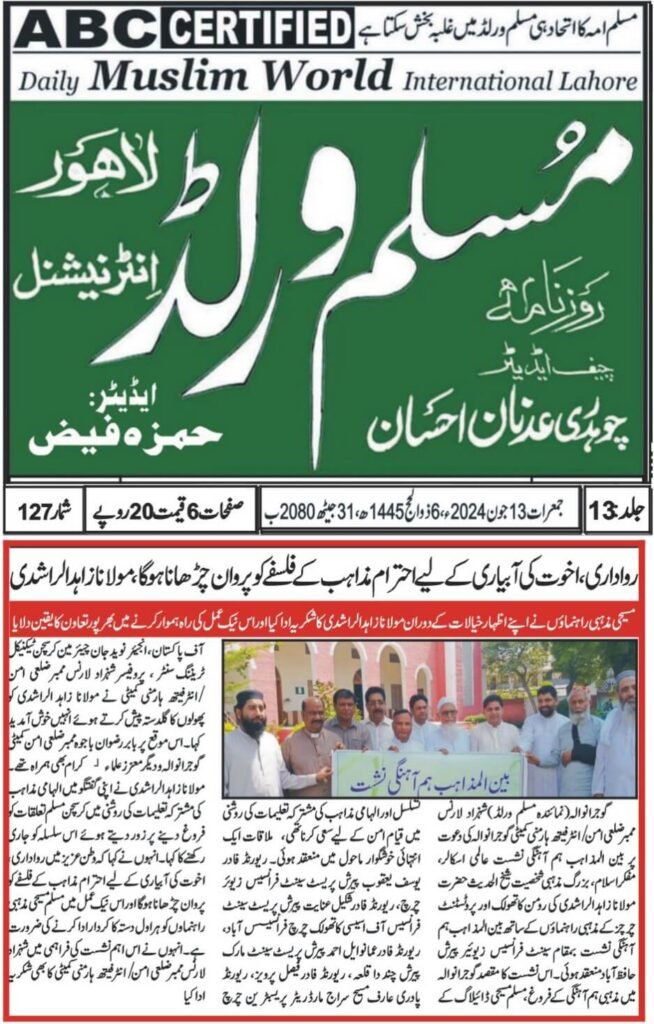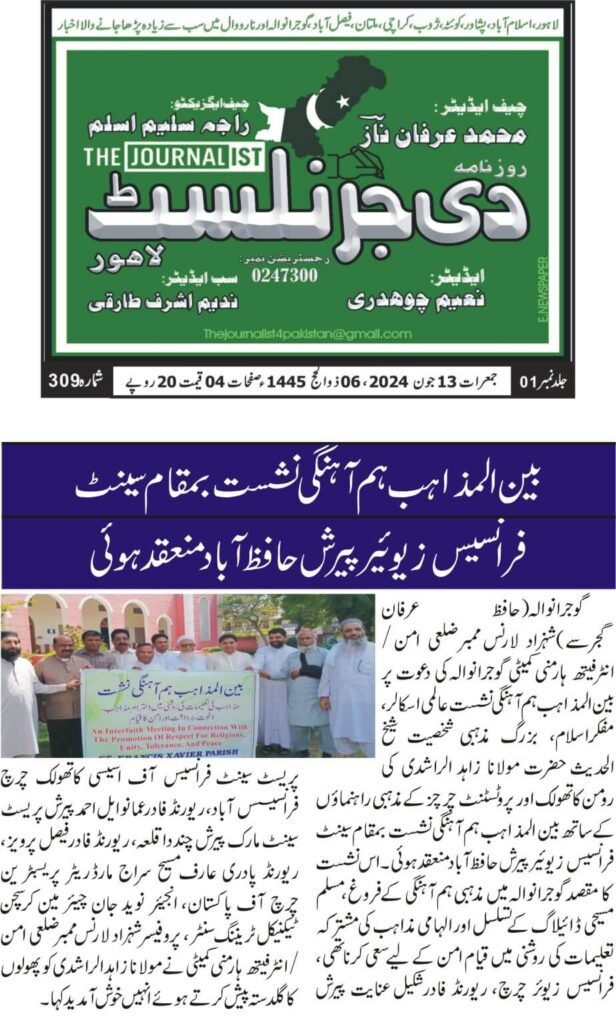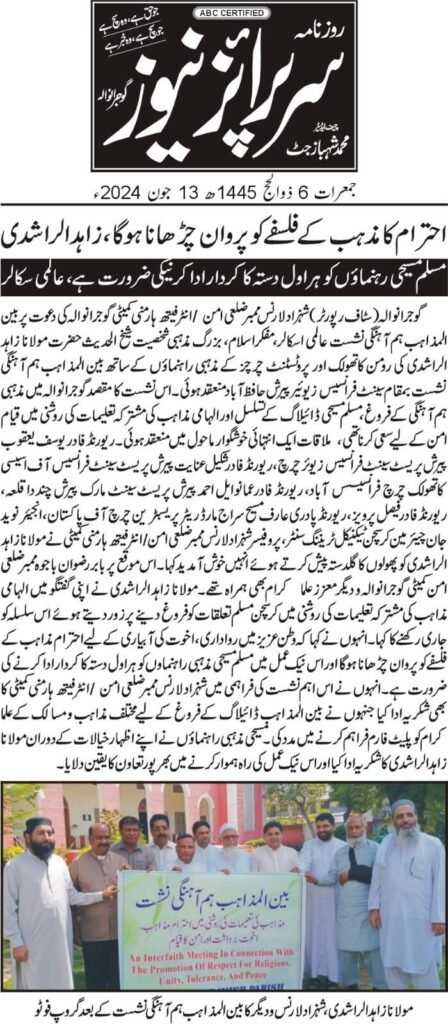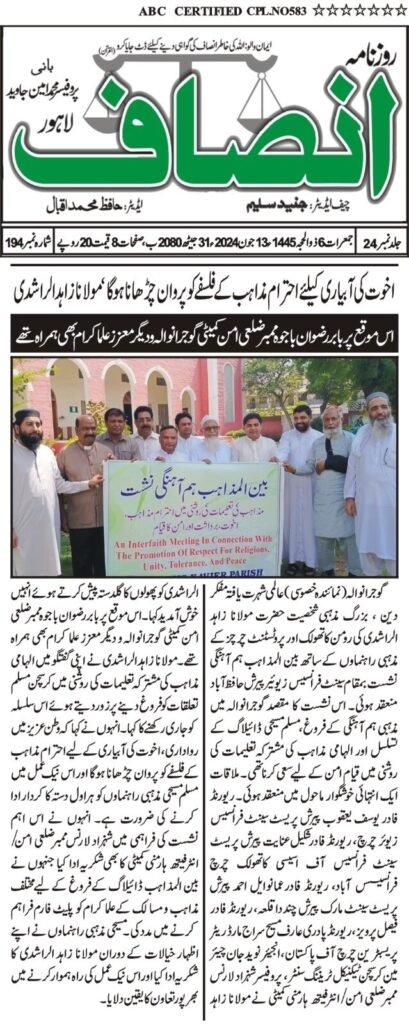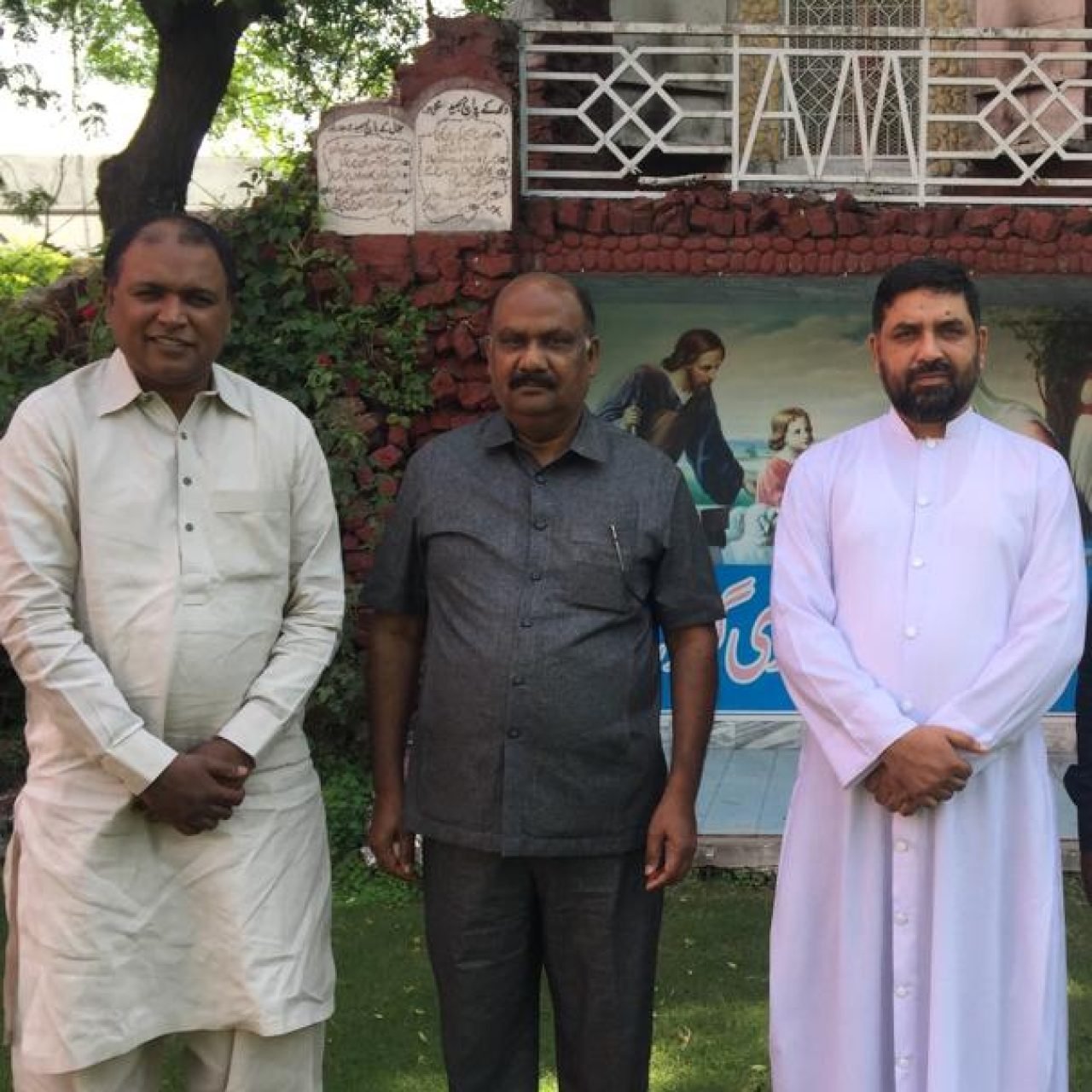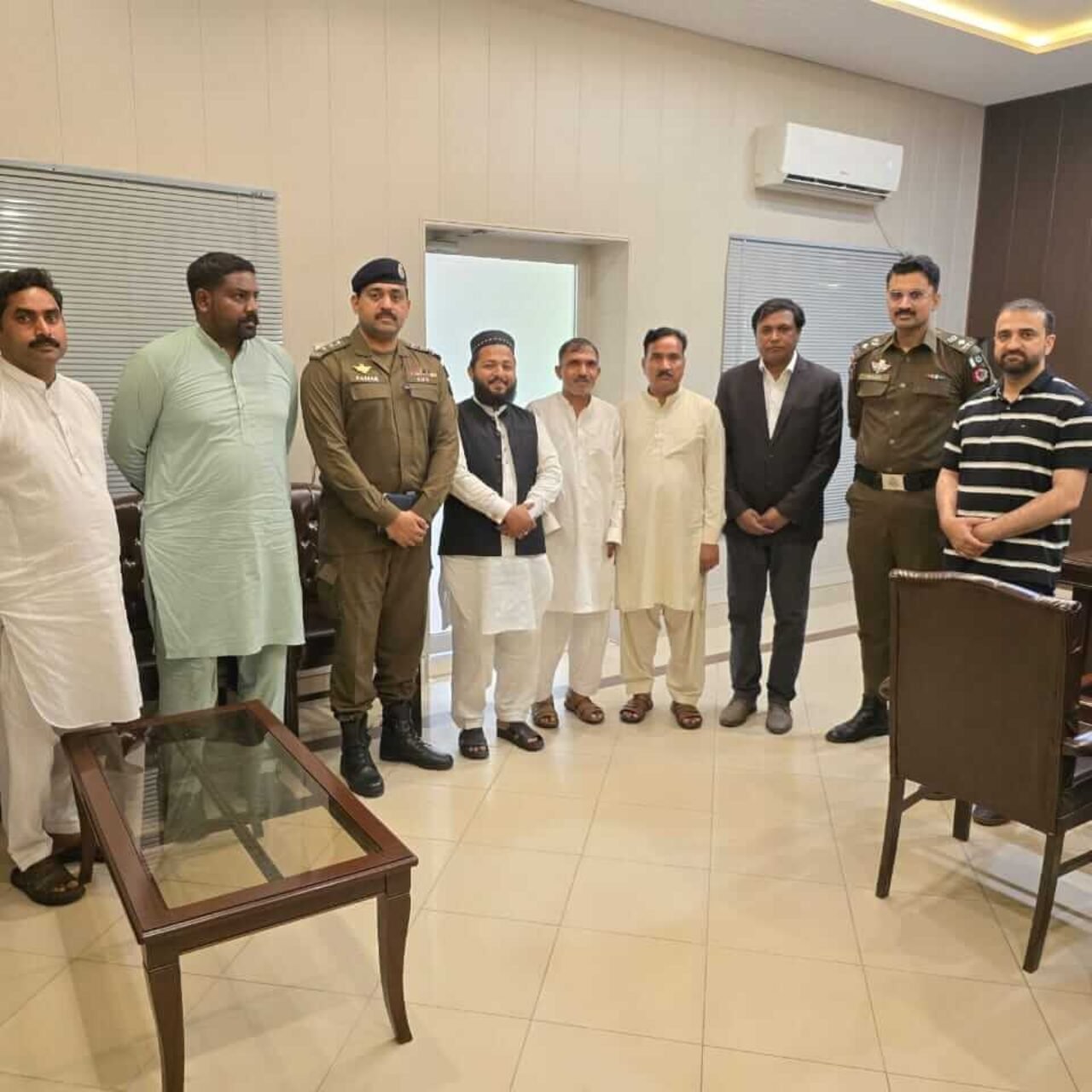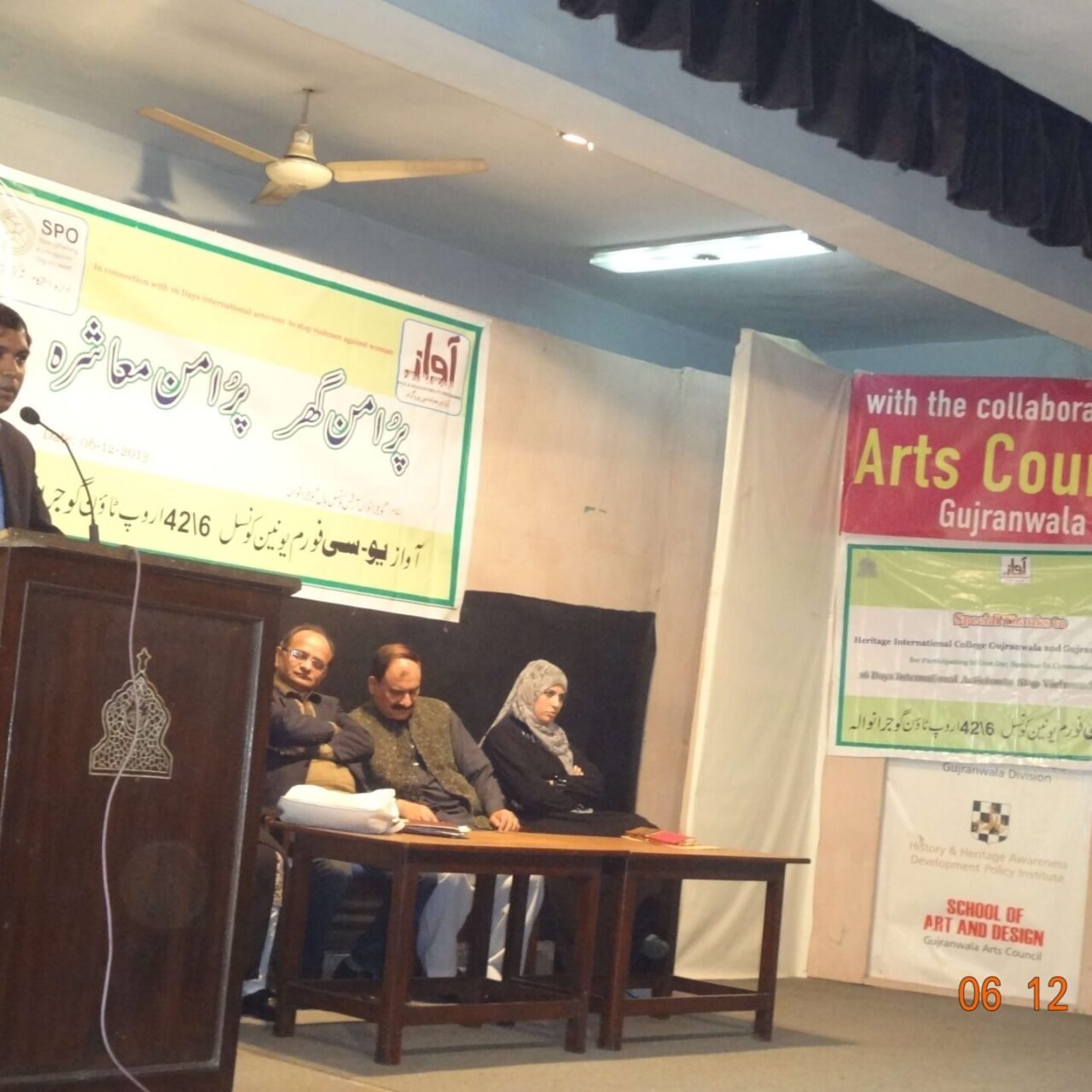An interfaith meeting between Christian and Muslim religious leaders was organized at Saint Francis Xavier Parish here on 12.06.2024. The meeting was chaired by Rev. Fr. Yousaf Yaqoob a Parish Priest. The meeting started at 9 am. The participants appreciated Mr. Shahzad Lawrence for organizing this meeting.
To promote understanding, dialogue, and harmony between the two communities. Such gatherings provide an opportunity for leaders to share common values, discuss differences, and find ways to collaborate on issues of mutual concern. They can also foster friendships and relationships that transcend religious boundaries, contributing to peace and unity in diverse societies. This kind of interfaith dialogue is vital for
building bridges, dispelling stereotypes, and fostering respect and cooperation among people of different faiths.
Mollana Zahid Ur Rashdi, is a Pakistani Islamic scholar, writer, editor, columnist, and founding director of Al-Sharia Academy, Gujranwala. He has served in various positions in different political and educational institutions and came to share his thoughts. Whereas the leadership of Roman Catholics and Protestants attended this meeting.
Such a wonderful initiative! Bringing together religious leaders from different faiths to promote dialogue. Both Islam and Christianity share many common teachings, such as the importance of compassion, love for one another, and the pursuit of peace. By highlighting these commonalities and engaging in constructive conversations, such meetings can contribute significantly to building bridges and promoting peaceful coexistence.
We believe that religious leaders play a crucial role in promoting peace and harmony in society through various means: such as religious leaders can facilitate dialogue and understanding among different religious communities, fostering mutual respect and cooperation.
Moreover, they can advocate for peaceful resolutions to conflicts, emphasizing the importance of dialogue, reconciliation, and forgiveness over violence and retaliation.
In addition, religious leaders can teach the principles of peace, compassion, and empathy found within their respective traditions, inspiring individuals to live harmoniously with others. They can engage with their communities to address social issues such as poverty, inequality, and injustice, which are often underlying causes of conflict.
Likewise, religious leaders can serve as mediators in conflicts, using their moral authority to facilitate negotiations and promote understanding between conflicting parties. They can advocate for the protection of human rights for all individuals, regardless of their religious beliefs, ethnicity, or background. During times of crisis or
disaster, religious leaders can provide spiritual guidance, comfort, and support to affected communities, helping them to cope with trauma and rebuild their lives.
Religious leaders agreed to continue joint efforts to help District police and District administration to lessen the hate at the grassroots level while they were expressing their thoughts.

